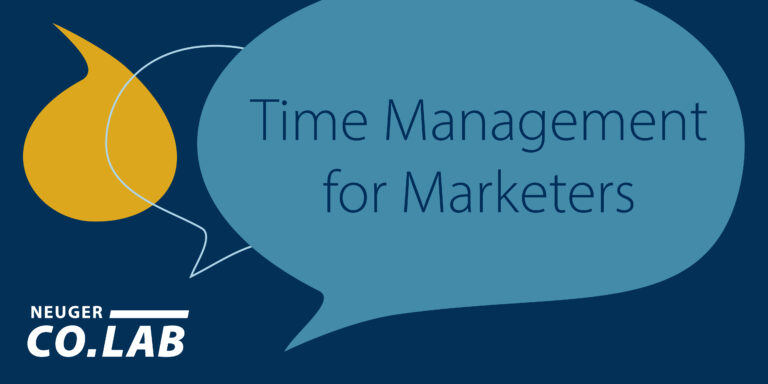
For our 15th CO.LAB webinar session, Wendy Placko and Daniel Edwins focused on sharing their insights and strategies for improving productivity and how they’ve managed to stay on task as they’ve continued to work from home during COVID-19.
Session 15 Hosts
- Daniel Edwins, Vice President & Digital Team Lead
- Wendy Placko, Director of Sales & Video Team Lead
Takeaways
Are you a deep worker or a shallow worker?
- “Doing work in a state of distraction-free concentration that pushes your cognitive capabilities to their limit. These efforts create new value, improve your skill and are hard to replicate.”
- Paradox: Doing deep work is becoming rarer and increasingly valuable in our economy.
- If you are a deep worker, you tend to set aside large blocks of time. If you are a shallow worker, your day will be filled with interruptions.
- Be able to identify when you have the most energy during the day and schedule your work accordingly to that timeframe.
- Pick a location that helps you relax and focus. Consider using background music or ambient noise while working on tasks that require less brain activity.
Distractions are costly
- According to a University of California, Irvine study, after being distracted, it takes an average of 23 minutes and 15 seconds to get back to the task.
- Procrastination is not the same thing as laziness. Procrastination is often a product of stress and insecurity based on your qualifications for completing a task and/or what people will think about the final product.
- The biggest challenge for many is simply just getting started. Commit to the task for five minutes. Chances are that after that five minutes, you will be in a working rhythm to finish the task promptly.
How do I “get in the zone?”
- Close email, have caffeine or listen to instrumental music.
- It is often useful to schedule deep work time, “office hour” time blocks and communicate with coworkers about utilizing meeting times.
- Shorter, actionable meetings allow for more individual work time, so schedule meetings with clear objectives. Need to be in all meetings? Use meetings for alignment, not brainstorming direction.
The myth of multitasking
- Studies show that the human brain can’t handle more than one task at a time. Even though we think we’re multitasking, our brains are actually switching rapidly between tasks. (The Myth of Multitasking. Scientific America. July, 2009.)
- Multitasking leads to as much as a 40% drop in productivity. (Bergman, P. May, 2010). How (and why) to stop multitasking. Harvard Business Review.)
Ultradian rhythms
- The human body operates on cycles called “ultradian rhythms.” According to research, during each of these cycles, there is a peak when we are most energized and a period when we are exhausted. You are most active in the morning.
- Your brain can only focus for 90–120 minutes at a time. Afterward, a 20–30 minute break is required to get the renewal to achieve high performance for your next task again. Give yourself a break, but it is essential to be mindful of your email. Be responsive throughout the day, even during breaks.
Resources
Books
- Deep Work by Cal Newport
- Getting Things Done by David Allen
- Peopleware: Productive Projects and Teams by Timothy Lister and Tom DeMarco
Apps & Other Tools
- Forest App: Limit your time on websites and apps that could be a distraction. Don’t kill the tree!
- Google Goals: Set time management goals through your Google account and you will be sent notifications.
- GTD® Workflow Map: Determine if you are a deep or shallow worker. This map helps identify your behaviors and set actionable goals for change.
- Headspace: A very popular meditation and time management app.
- Keyboard Maestro: Efficient message/email automation system.
In Summary
Although it has been pleasant having the luxury of throwing on sweatpants for conference calls and avoiding soul-crushing daily traffic, working from the comfort of one’s home has caused a significant lull in motivation and consistent productivity for many. It is crucial to cut yourself some slack; you won’t fix your habits overnight. Take the first step of reshaping your work habits by downloading an app, reading one of our recommended books or merely doing some self-reflection. We hope our suggestions are helpful!